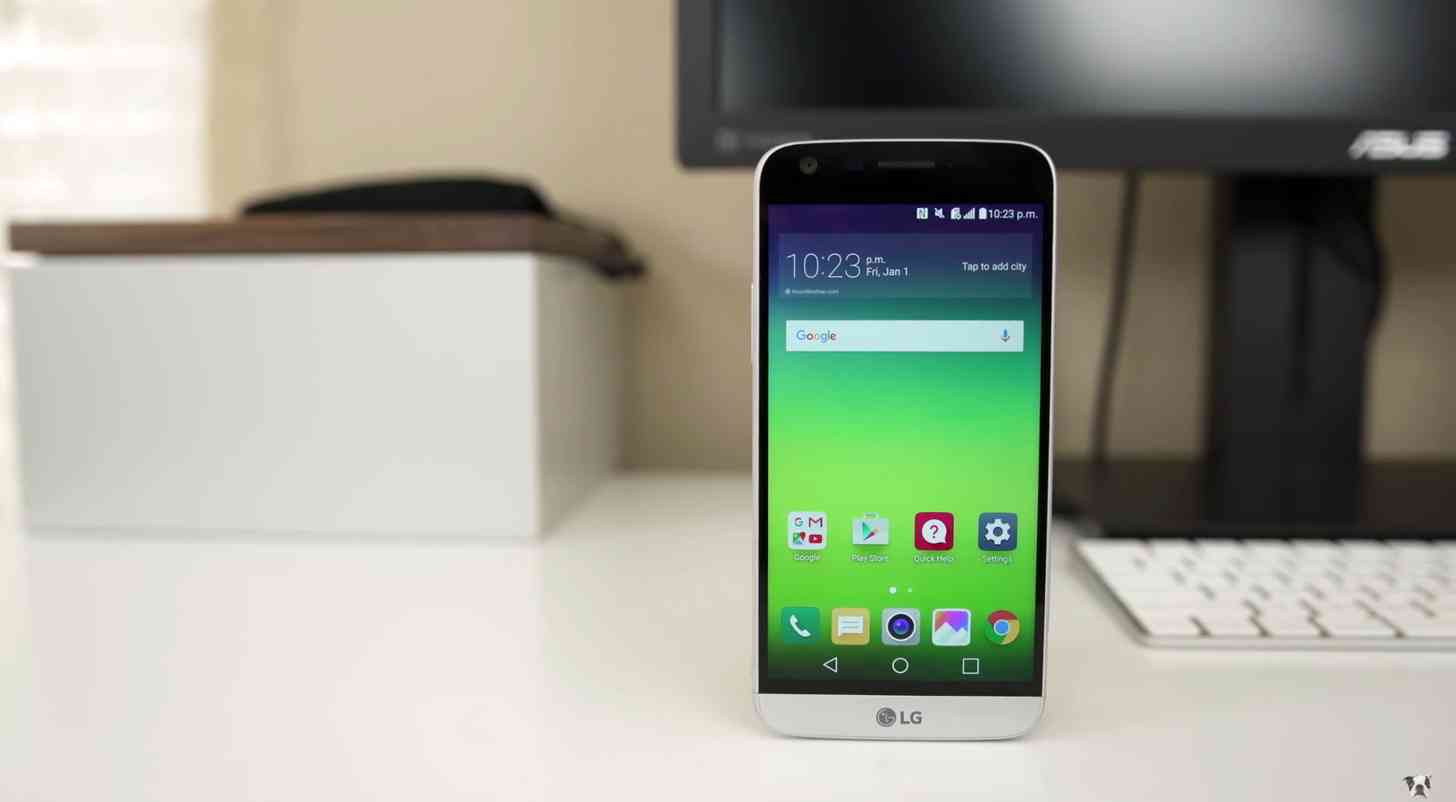
MWC 2016 is nearly a month behind us now, but two of the highly anticipated devices that were presented to us during the event are finally – or nearly – making their way to retail shelves and into our hands. The Samsung Galaxy S7 was released earlier this month on March 11, and LG’s competing flagship, the LG G5, will be available starting April 1 (and that's no joke).
The Galaxy S7 having a few weeks’ worth of sales time over the G5 probably won't be what makes or breaks the G5’s outcome; the more that I think about it, the more I think that LG would have its work cut out for them either way.
While Samsung may no longer be the unrivaled “sweetheart” of Android that it once was, it still has a ton of reputation and brand recognition that it can coast on. Coupling that with the fact that the Galaxy S7 has already received a plethora of raving reviews makes it easy to overshadow an underdog manufacturer like LG.
Another obstacle that LG will need to overcome is convincing people that its modular type design is worth a look. The G5’s “modular type” does a good job of being the middle ground between a typical smartphone and a true modular smartphone like Project Ara. But with it being the first of its kind, the question still remains on just how well a modular (type) smartphone will do.
The G5 only has two modules right now: the CAM Plus camera module, and the Hi-Fi Plus audio module. These additional modules will certainly appeal to those who use their smartphone exclusively as their camera, or people who have been looking for an enhanced audio experience that they can take with them on the go. But will people be interested in switching out the modules depending on when they're needed or not needed? After all, a major appeal of smartphones is the fact that you can carry less with you since they have replaced many gadgets we have used over the past decade. The switching of modules can easily be seen as a hassle rather than privilege.
However, it's important to note that these modules are optional accessories, and the G5 on its own without them is still a worthy flagship. The native camera is still competitive, specs are excellent, microSD cards are supported, and we can’t forget the fact that the G5 is one of the last remaining devices that features a removable battery. Overall, the G5 is a worthy contender all on its own – the modules are an added benefit.
But there's still one more area where LG needs to compete against Samsung, and that's on price and promotions. Recent revelations have told us that the G5 will ultimately cost less than the Galaxy S7, but not by much. The bigger problem, in my opinion, are the promotions. There already a plethora of awesome deals going on for the Galaxy S7, including numerous buy one get one free campaigns, free Gear VR headsets, and numerous Samsung Pay promos as an added perk of owning a Samsung device. Even the iPhone is seeing some rare price cuts, presumably due to the unofficial rivalry of Apple and Samsung.
LG is no stranger to promotions and price cuts of its own, though. LG’s website offers a free second battery and charging cradle. Meanwhile, T-Mobile offers all of that and more, throwing in a free LG 360 CAM into the mix if you purchase the G5 before April 5th (not the CAM Plus module). Best Buy has a couple of deals with a $100 savings for Sprint customers, and a $100 gift card to Best Buy. Although these deals are nothing to snuff at, it's hard to deny that the numerous 2-for-1 deals for Samsung’s devices ultimately provide better value for the money.
The LG G5 is one of the most – if not the most – innovative smartphone on the market this year, but innovation may not be a match for the massive brand recognition, marketing expertise, and boss promotions that Samsung has.
How do you think the LG G5 will do against the Samsung Galaxy S7? Do you think its innovative modular type design will end up drawing people in, or is the concept too complicated for mass appeal? Let us know your thoughts in the comments below!